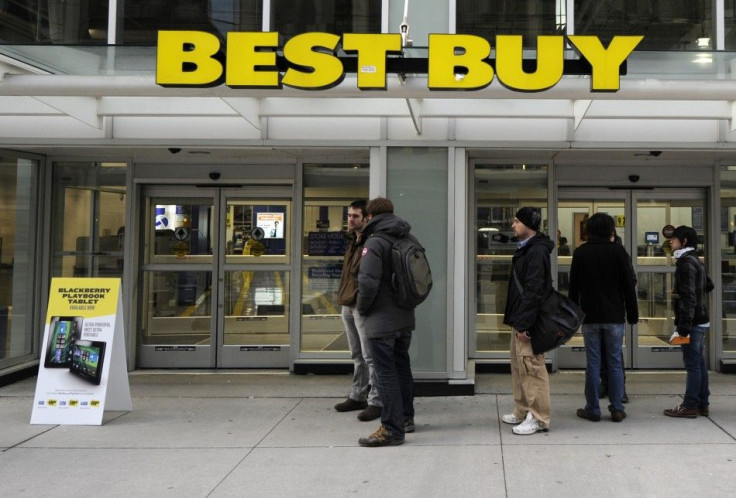Best Buy Not Ready for Dead
Company fights back with stock repurchase plan, dividend hike

Who says Best Buy is dead?
Leadership at the big box consumer electronics retailer certainly doesn't think so. The company is putting money where its mouth is with a new $5 billion stock repurchase program and a 7% increase in its quarterly dividend.
Naysayers have been working on the company's obituary for months now, citing examples like lean store staffing impairing customer services to hair dryers displayed in prime front windows as examples of difficult times. Wall Street has agreed, pushing Best Buy's stock (NYSE: BBY) down more than 30 percent in the past six months.
The sinking market valuation has only fanned flames burning around Best Buy.
Consumers are also buying electronics from diversified big box retailers like Wal-Mart, Costco and Target while other competitors have been targeting Best Buy's Geek Squad technical services with knockoff, geek-like solutions. When e-tailer Newegg.com used the word geek in an ad making fun of Best Buy Geek Squad employees earlier this month Best Buy's legal team stepped in, claiming trademark infringement.The move and others like it brought scrutiny to the company since the word geek has been around a lot longer than Best Buy's Geek Squad electronic services trademark. The company itself is only 45 years old, while the word geek dates to the 18th century.
But attack mode is often the best strategy when vultures are circling. Thus, the company is using the stock buyback and dividend increase to 16 cents a share each quarter to try and make a statement that it's not dead, much less worthy of a work-in-progress obituary. When Wall Street punishes a stock and the company's leadership and board of directors wants to show disagreement with the sentiment, then pouring cash into stock absorption is a good way to turn the negative investment tide.
In an improving economy, cash hordes held for emergency purposes after the recession may no longer be needed, and with Best Buy's stock near a two-year low - why not?
They are sitting on $2.2 billion of cash. I think it makes sense to return some of that value to shareholders, said Anthony Chukumba, an analyst with BB&T Capital Markets, which makes a market in the securities of Best Buy, in a Reuters story, Chukumba pointed out that Best Buy is also reducing square footage in its big box retail stores by 10 percent over the next five years.
Best Buy's strategy in the competitive marketplace has been to slow the opening of its larger big box stores, focusing instead on expansion of its smaller, niche Best Buy Mobile stores selling smart phones and other communication devices and apparatus. In other words, Best Buy CEO Brian Dunn is trying to quietly shift the company's future, avoiding becoming another dead big box retailer by becoming a more nimble and targeted smaller box retailer. He is also continuing to push sales to bestbuy.com, a company profit source.
Wall Street hasn't cared much about that strategy so far, but investors did perk up this week on the news of the big stock buyback and dividend increase, sending Best Buy shares up 3% in heavy volume in the trading day on the announcement. Time will tell how long the momentum will last, but for the moment we know that Best Buy's leadership believes the company is anything but dead.
© Copyright IBTimes 2024. All rights reserved.











